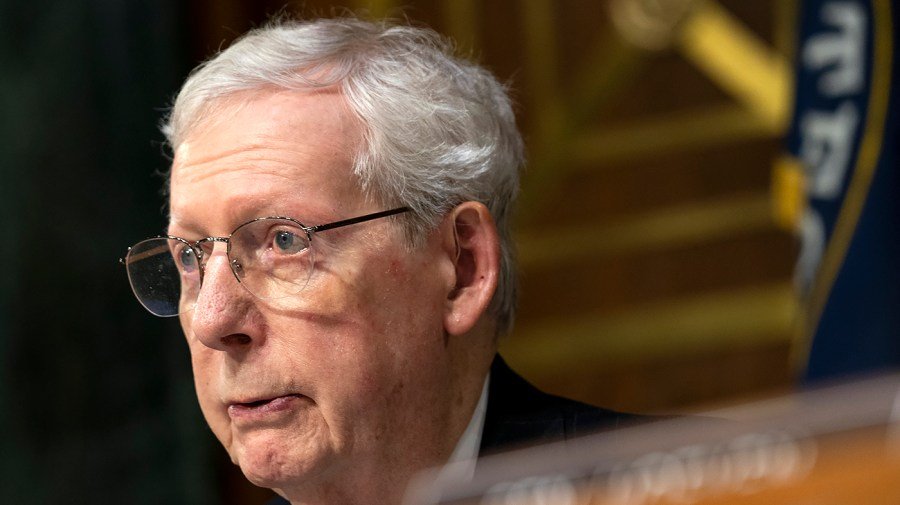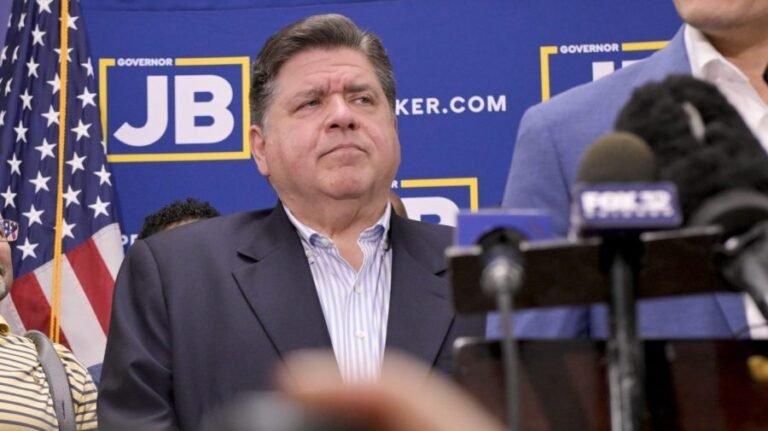
The House and Senate are headed for a tussle over the annual, must-pass defense spending bill as the upper chamber’s version stands at odds with the budget passed by the House and a proposal from the Trump administration.
The Republican-led Senate Appropriations Committee last month approved nearly $853 billion for the Defense Department for fiscal year 2026, a bill that allocates $21.7 billion more than President Trump requested earlier this year.
The topline increase, which includes a significant bump in munitions, pay raises for troops and support for Ukraine, puts the chamber on a collision course with the House, which wrote its version of the defense spending bill before the administration dropped its budget and before the final version of the reconciliation bill passed.
Sen. Mitch McConnell (R-Ky.), who chairs the Appropriations panel’s defense subcommittee and crafted the major rewrite of Trump’s defense budget, previewed the fight to come when he remarked that the administration has “underestimated the level of challenge that we have.”
The Senate bill “underscores that we cannot seriously address these challenges while artificially constraining our resources,” McConnell said July 31 during the Senate Appropriations markup.
“We can’t build a Golden Dome, or restock our munitions, or bring back American shipbuilding without sustained increased investments in all of our national defense. And we can’t treat reconciliation like a cure-all.”
The legislation boosts aid for Ukraine, Taiwan and NATO’s eastern border, ramps up shipbuilding, funds a 3.8 percent troop pay raise, and puts billions of dollars towards rebuilding U.S. missile stockpiles – depleted thanks to shipments of weapons for Ukraine’s fight against Russia and conflicts in the Middle East.
The House version largely followed the administration’s flat numbers and went with a lower defense spending topline of $831.5 billion, sticking to the broad aspects of the administration’s budget request that was available at the time. It does not include aid for Ukraine and has significant anti-diversity and abortion language, as well as other items that are a nonstarter for Democrats, making it a tough lift in the Senate.
The House passed its defense spending bill almost entirely along party lines in a close 221-209 vote on July 18.
The Senate’s version is a much broader rewrite of the administration’s budget that has strong bipartisan support. It made it out of the Appropriations Committee in a 26–3 vote.
Both the House and Senate Appropriations Democratic members also have been critical of the Pentagon for not sending its budget sooner – administration officials did not formally unveil a proposed defense budget until late June, well past the early February deadline – and splitting it up between regular appropriations and reconciliation.
The latter issue, they said, has created unnecessary confusion and may put the military’s most important weapons programs at risk, given that it’s unclear where the money might come from for certain systems. The reconciliation bill that cleared Congress last month included more than $150 billion for defense priorities.
“The fact is we did not have the president’s plan for his defense priorities when this bill was written,” said the House Defense Appropriations Committee ranking member Betty McCollum (D-Minn.). “That makes this bill an incomplete product.”
One of the biggest fights on the horizon will likely be the issue of Ukraine aid. The Senate’s bill includes $800 million for the Ukraine Security Assistance Initiative (USAI), under which the U.S. provides funds to buy weapons for Kyiv, and $225 million for the Baltic Security Initiative. That fund largely helps support Ukraine in its war against Russia.
McConnell, a Russia hawk and part of the old guard of Republicans, has backed support for Ukraine throughout Russia’s invasion of the country, which began in February 2022. He has also expressed frustration with the administration for repeatedly halting shipments of weapons for Kyiv and not notifying lawmakers who authorized the shipments.
“Shutting off engagement with Ukraine would undermine our military’s efforts to prepare for the modern battlefield,” McConnell said last week.
The issue has been bipartisan, with two other members of the Appropriations committee, Sens. Lisa Murkowski (R-Alaska) and Jeanne Shaheen (D-N.H.), introducing a separate bill last week that would provide Ukraine $54.6 billion over two years.
Congress last passed a major aid package for Ukraine worth $61 billion in April 2024 under the Biden administration.
The House and Senate now must square their versions of the appropriations bill as they head into September. After that, it would be put to a final vote, and if passed, sent to the White House for Trump to sign into law or veto.


